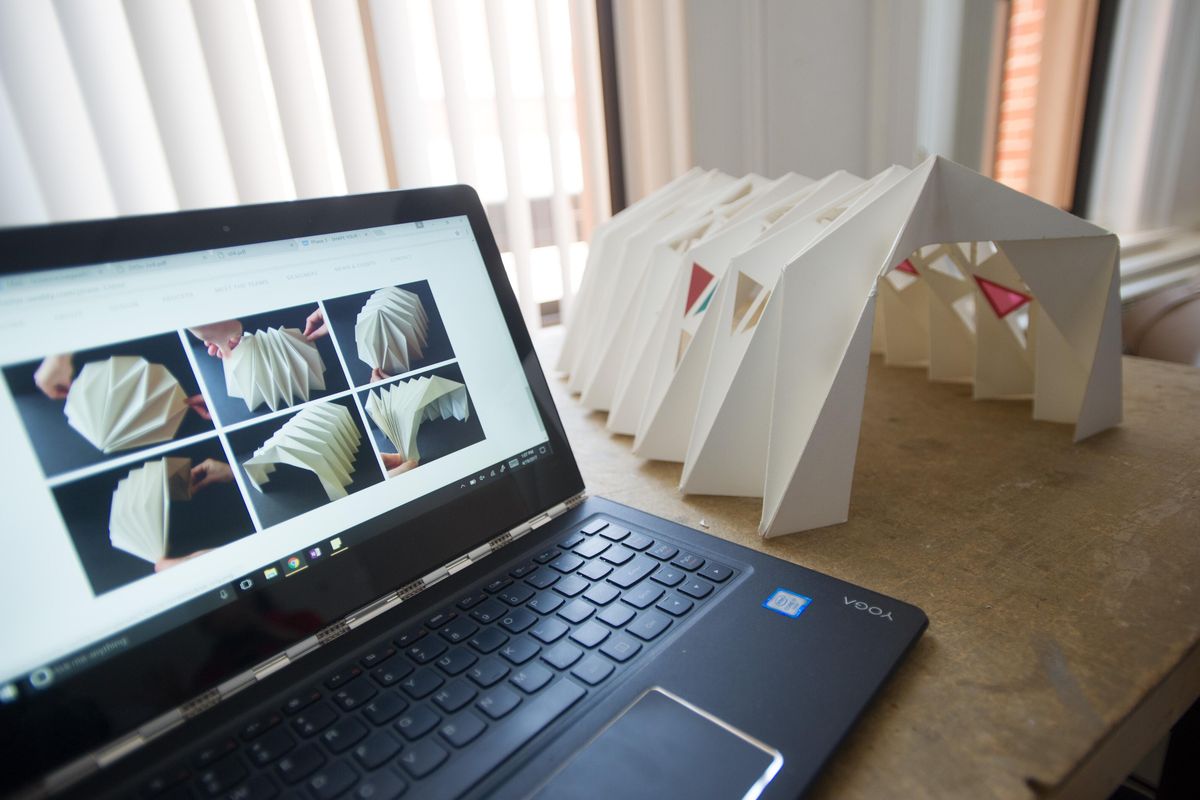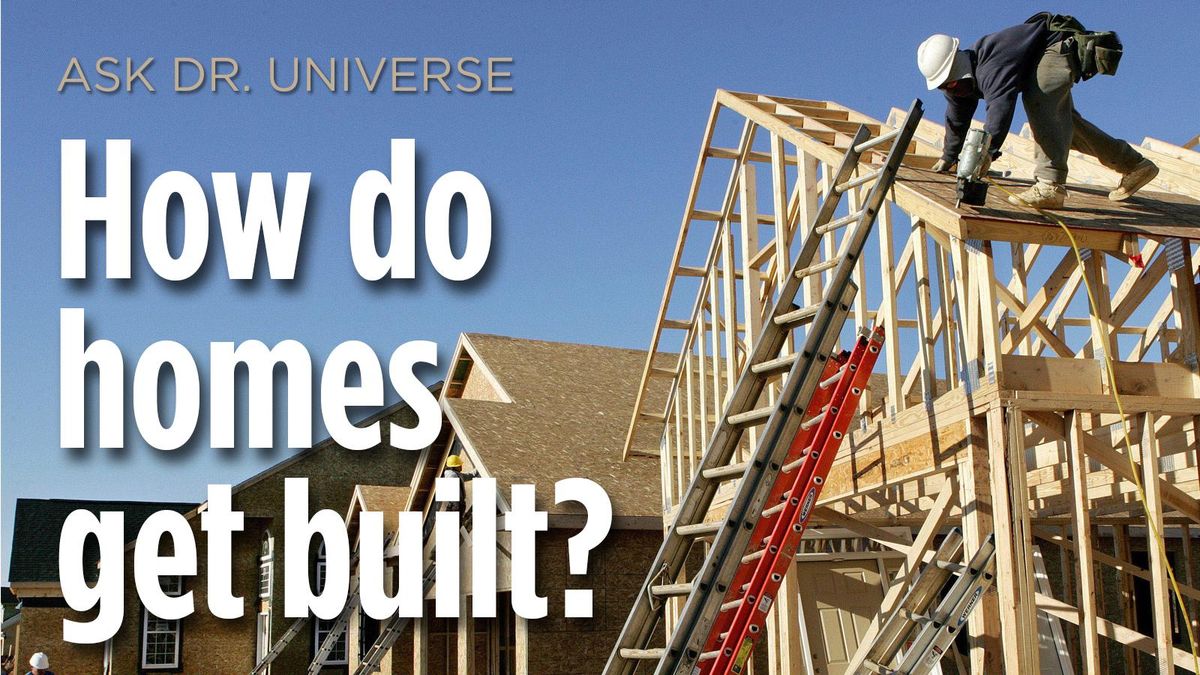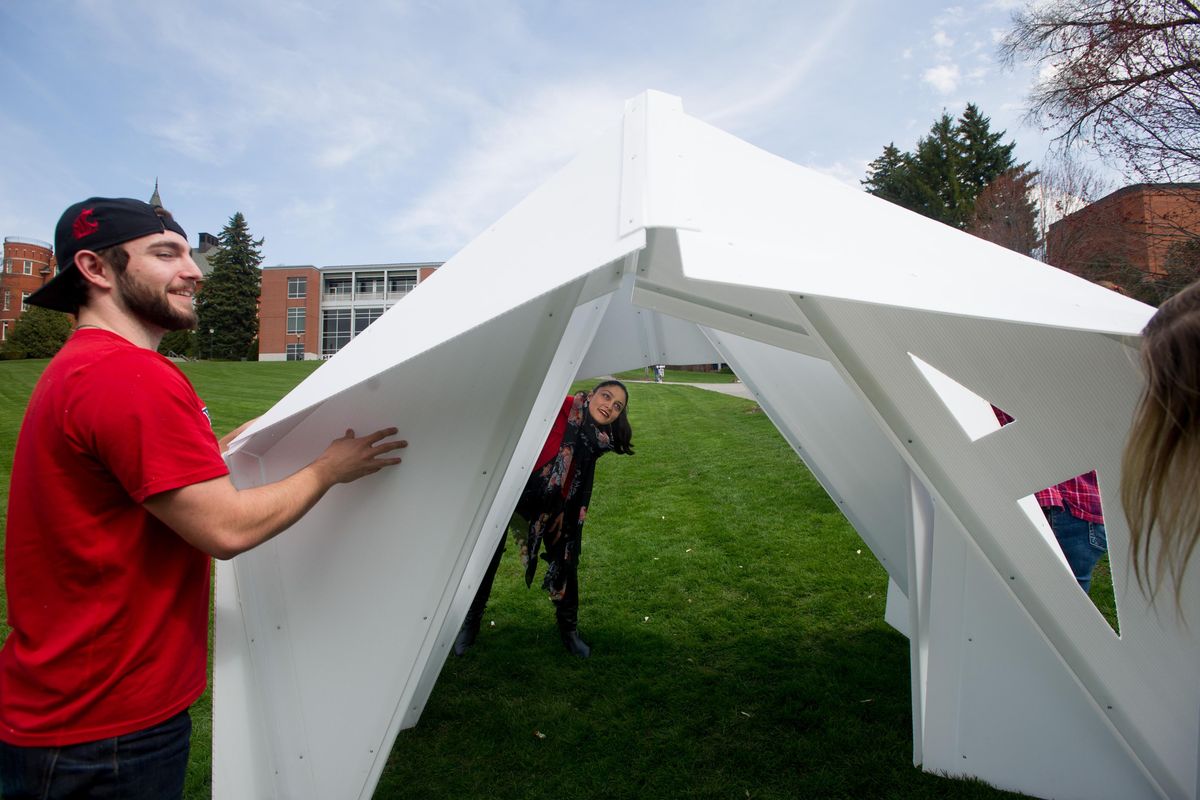Ask Dr. Universe: It takes imagination and planning to build a home
Mona Ghandi a WSU Architecture professor, center helps set up a portable homeless shelter designed her WSU architecture students including Jamie Stidhams, left, on Wednesday, April 19, 2017, in Pullman, Wash. (Tyler Tjomsland / The Spokesman-Review)Buy a print of this photo
Dear Dr. Universe: How do houses get built? – OWL School Students, United Kingdom
Dear OWL School Students:
Humans have built all kinds of houses throughout history. During the Ice Age, humans made their homes in big caves. A few thousand years later, people figured out how to fire up a hot oven and bake their own clay bricks.
A lot of the first houses made of these bricks didn’t even have front doors. To get in the house, you climbed up a ladder to the roof and used another ladder to get down inside.
“As soon as humans left their caves and started settling in cities, architecture has been with us,” said my friend Mona Ghandi.
Ghandi is an architect and researcher at Washington State University. An architect is someone who designs buildings and supervises their construction. She said you, too, can be an architect.
First, you will need an idea. Think of a house you want to build and sketch it out on paper. After the initial idea and sketch, you can either develop your design on paper or try using a digital design software.
Next, evaluate your design. Ask a bunch of questions, like: Will your house stand up to the weather? How does its design fit into the neighborhood? Does it meet city regulations and codes? Then you can adopt your design. That means you take it from imagination to reality.
“There is no end to design,” Ghandi said. “You can always make it better and better. The only thing that stops it is a deadline.”
It takes a whole team of architects, carpenters, plumbers, electricians, structural engineers, and construction workers to build a house. We also need to think about materials. If you want to make a small house on your desk at school, you might use scraps of paper or foam boards. If you want to start a little bigger, maybe you can work with your class to build a structure made of cardboard boxes.
Ghandi also reminded me that not everyone has a house. But she and her students are working to change that. Ghandi worked with her students to build a piece of architecture for homeless people that folds up like an accordion and can be unfolded into a small shelter.
That shelter can take up to eight different configurations. It will give people a place to keep their belongings and have protection from the weather. People can also take it with them, wherever they go. Ghandi said the best part about architecture is that you can make things to help people live a better life.
Whether you live in a tall brick apartment building, a house made of mud and straw, a tiny house, a farmhouse in the country, or a house on wheels, there’s a good chance houses will look much different in the future.
What do you think houses will look like the future? What materials will we use to build them? What kinds of things will the house be able to do? Tell us about your ideas or send us your designs sometime at Dr.Universe@wsu.edu.
Sincerely,
Dr. Universe
Ask Dr. Universe is a project from Washington State University. Submit a question of your own at http://askDrUniverse. wsu.edu/ask.


